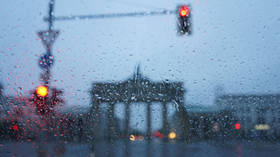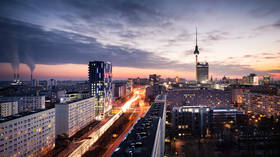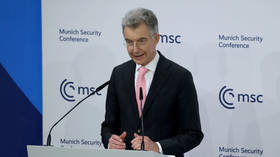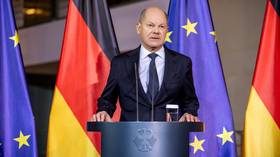Germans have grim expectations about economy – study

Most Germans do not expect consumer price growth to ease next year, according to a survey released on Monday by analytics firm YouGov. Inflation in Europe’s top economy hit double digits for the first time in 70 years this fall.
Half of the 2,057 people surveyed consider it likely that inflation will continue to rise in 2023. Just under a third (28%) expect price growth to remain at the high level of the past months. Only 13% of respondents expect lower inflation in 2023. The poll was conducted on behalf of the National Association of German Cooperative Banks.
Looking ahead to the next three years, the majority of those polled expect inflation to continue to rise or at least remain at the same high level. Only 28% anticipate rates falling, while 12% refused to express their opinion on the matter.
The results of the survey show “that the inflation rate is already threatening to become entrenched in people’s minds – with a corresponding impact on their behavior,” according to Jurgen Wache, spokesperson of the board of directors of Hannoversche Volksbank, as cited by the news agency DPA.
Consumer prices in Germany jumped 10% in November in annual terms, according to the Federal Statistical Office. In monthly terms, the inflation rate eased slightly from October’s 10.4% mark.
Soaring food and energy costs have been the culprit in pushing inflation in Germany this year to its highest levels since the early 1950s. The Bundesbank has warned that even a planned price cap on gas and electricity may not be enough to bring inflation down from double digits.
The price growth is likely to remain high for another two years as companies pass on higher input costs and in some cases inflate them even more, the head of the council of economists that advises the German government was reported as saying over the weekend.
“Inflation will also be an issue in 2024, and only thereafter will we maybe see it returning to 2%,” Monika Schnitzer was quoted as saying by the Rheinische Post newspaper.
For more stories on economy & finance visit RT's business section














